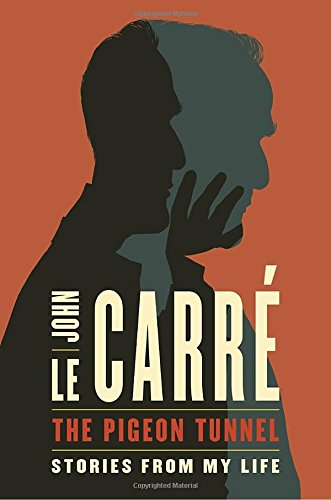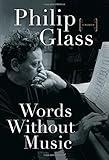 There’s a graciousness and respect that underlies all of the stories in this book. Little Me creates the feeling that the reader is being taken into a very relaxed confidence, in which we get to hear the juicy backstage details as if they were being whispered to us over a cup of tea. Obviously this is a book that will be far more enjoyable for fans than for those who have never seen Matt Lucas’ work – there are a lot of references to his shows, and reading about the processes behind the shows is definitely part of the enjoyment of this gentle, self-deprecating, sometimes slapstick, but always moving memoir.
There’s a graciousness and respect that underlies all of the stories in this book. Little Me creates the feeling that the reader is being taken into a very relaxed confidence, in which we get to hear the juicy backstage details as if they were being whispered to us over a cup of tea. Obviously this is a book that will be far more enjoyable for fans than for those who have never seen Matt Lucas’ work – there are a lot of references to his shows, and reading about the processes behind the shows is definitely part of the enjoyment of this gentle, self-deprecating, sometimes slapstick, but always moving memoir.
Category: Biography
A review of The Diary of Esther Small 1886 edited and transcribed by Sarah Sousa
 Sousa was not simply intrigued. She was invested. She deciphered the entries, sleuthed the cemetery records and censuses, and extensively researched nineteenth century women’s diaries, as evidenced in her luminous afterword on the subject. Surpassing the role of transcriber of Small’s logbook, Sousa became conservator and steward of the archive of her daily life.
Sousa was not simply intrigued. She was invested. She deciphered the entries, sleuthed the cemetery records and censuses, and extensively researched nineteenth century women’s diaries, as evidenced in her luminous afterword on the subject. Surpassing the role of transcriber of Small’s logbook, Sousa became conservator and steward of the archive of her daily life.
Behind the Scenes with the Master of Espionage Thrillers: A review of The Pigeon Tunnel by John le Carré
 I closed The Pigeon Tunnel wanting more. More behind-the-scenes confessions. More striking prose from this master of evocative description. But Cornwell knows when and how to end a tale and leaves us with an anecdote loaded with both humor and irony.
I closed The Pigeon Tunnel wanting more. More behind-the-scenes confessions. More striking prose from this master of evocative description. But Cornwell knows when and how to end a tale and leaves us with an anecdote loaded with both humor and irony.
A review of Andrei Tarkovsky by Sean Martin
 An artist who set himself the task of capturing consciousness on the hoof, making tangible the fleeting quail of phenomenal experience, Tarkovsky made things hard for himself and harder still for all directors who would follow in his footsteps. Man, he set the bar high. Even Bergman, one of the true greats, acknowledges that he is without peer.
An artist who set himself the task of capturing consciousness on the hoof, making tangible the fleeting quail of phenomenal experience, Tarkovsky made things hard for himself and harder still for all directors who would follow in his footsteps. Man, he set the bar high. Even Bergman, one of the true greats, acknowledges that he is without peer.
A review of Mick: A life of Randolph Stow by Suzanne Falkiner
 This first full biography by Suzanne Falkiner of Julian Randolph Stow, known by those close to him as Mick, is thorough and engaging. I first encountered his novels at university twenty-five years ago, and was drawn to the mysterious Visitants, the subject of our study at the time, and later read The suburbs of hell, but it wasn’t until I first heard that this biography was being published that I read two more of his novels to remind myself of his depth and style.
This first full biography by Suzanne Falkiner of Julian Randolph Stow, known by those close to him as Mick, is thorough and engaging. I first encountered his novels at university twenty-five years ago, and was drawn to the mysterious Visitants, the subject of our study at the time, and later read The suburbs of hell, but it wasn’t until I first heard that this biography was being published that I read two more of his novels to remind myself of his depth and style.
A review of Prince: Purple Reign by Mick Wall
 After reading this book, Prince remains enigmatic, and perhaps that’s part of the tribute. This is a man whose legacy was his music, an oeuvre that not only provided a platform that many of today’s most respected musicians have built their careers on, but one that continues to develop the more you listen to it. There’s so much more to listen to than simply the big hits, though those hits are far more complex than the instant pop accessibility of it would suggest.
After reading this book, Prince remains enigmatic, and perhaps that’s part of the tribute. This is a man whose legacy was his music, an oeuvre that not only provided a platform that many of today’s most respected musicians have built their careers on, but one that continues to develop the more you listen to it. There’s so much more to listen to than simply the big hits, though those hits are far more complex than the instant pop accessibility of it would suggest.
A review of Hitler: Volume I: Ascent 1889-1939 by Volker Ullrich
 This nuanced, well researched and often reflective biography follows closely upon the heels of Peter Longerich’s books about Himmler and Goebbels and a new scholarly edition of Mein Kampf. Apparently, there is renewed interest in what the Nazis did and thought, and this is perhaps because our world, as Timothy Snyder notes in Black Earth, is becoming more like theirs.
This nuanced, well researched and often reflective biography follows closely upon the heels of Peter Longerich’s books about Himmler and Goebbels and a new scholarly edition of Mein Kampf. Apparently, there is renewed interest in what the Nazis did and thought, and this is perhaps because our world, as Timothy Snyder notes in Black Earth, is becoming more like theirs.
A review of Apostate Englishman by Albert Braz
 Archie Belaney “went native”, in an era when “the cowboys always won.” In the early 20th century, American First Nations people were still regarded as savages with a lust for killing wild animals. On one occasion, in an upscale Toronto hotel while on a lecture tour, Grey Owl was taunted for being Indian. He harmed no one with his deception. Did writing about his own experiences in the forest with animals constitute cultural appropriation? Braz says no.
Archie Belaney “went native”, in an era when “the cowboys always won.” In the early 20th century, American First Nations people were still regarded as savages with a lust for killing wild animals. On one occasion, in an upscale Toronto hotel while on a lecture tour, Grey Owl was taunted for being Indian. He harmed no one with his deception. Did writing about his own experiences in the forest with animals constitute cultural appropriation? Braz says no.
A review of Mr Copacabana: An American History by Night by Jim Proser
 Monte lived the American Dream and its Nightmare. He frequently had it all and just as frequently had nothing – often, it seems, at the same time. He opened the Copacabana nightclub in New York City in 1940 and for thirty years it remained the centre of the show business world: if a performer could succeed at the Copa, their career was made (and for those on the skids, frequently remade).
Monte lived the American Dream and its Nightmare. He frequently had it all and just as frequently had nothing – often, it seems, at the same time. He opened the Copacabana nightclub in New York City in 1940 and for thirty years it remained the centre of the show business world: if a performer could succeed at the Copa, their career was made (and for those on the skids, frequently remade).
A review of Words Without Music by Philip Glass
 There is so much to learn here, not just about Glass, but about ourselves—how to live, how to learn, how to create. Towards the end of the book, Glass talks about his work on his Cocteau Trilogy in which he says, of Cocteau, that he “is teaching about creativity in terms of the power of the artist, which we now understand to be the power of transformation” (378) The same can be said of Words Without Music.
There is so much to learn here, not just about Glass, but about ourselves—how to live, how to learn, how to create. Towards the end of the book, Glass talks about his work on his Cocteau Trilogy in which he says, of Cocteau, that he “is teaching about creativity in terms of the power of the artist, which we now understand to be the power of transformation” (378) The same can be said of Words Without Music.